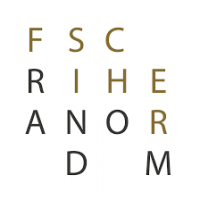Ŝiaro and liaro can be used for gendered they-forms.
从 konesperantidoj, 2023年5月19日
讯息: 6
语言: English
konesperantidoj (显示个人资料) 2023年5月19日下午10:13:02
So the «iŝi» and «ihi» nonsense is unneeded.
Frano (显示个人资料) 2023年5月20日上午7:00:41
amigueo (显示个人资料) 2023年5月20日下午2:01:07
Frano:Ŝiaro and liaro are nouns, «iŝi» and «ihi» pretend to be pronouns.Alternatives to SXIARO as plural sxi:
1. ISXI well combines IHI and IVI.
2. SXIAR is friend of SXIARN.
3. SXARI is like SXI.
4. SXIJ defies phonotactics.
5. SXIOJ opens door to "ni=mioj, ivi=vioj".
Possessives: isxia sxaria sxiara sxija.
They are only possibilities.
konesperantidoj (显示个人资料) 2023年5月20日下午3:09:28
Frano:Ŝiaro and liaro are nouns, «iŝi» and «ihi» pretend to be pronouns.lol yeah. Pronouns are just demonstrative nouns referring to beings by a general trait.
amigueo:Alternatives to SXIARO as plural sxi:Why make an alternative to ŝiaro? It works just fine and can even be formed in fundamento esperanto.
They are only possibilities.
and those possibilities suck and derail from fundamento esperanto.
amigueo (显示个人资料) 2023年5月22日下午3:38:58
" Sxioj kantis lauxte kaj arte, sed ni distaj ne auxdis sxi(o)jajn vocxojn.
" ar/jo amiko venis. (Interesting plural particle).
konesperantidoj (显示个人资料) 2023年7月6日下午5:19:37
